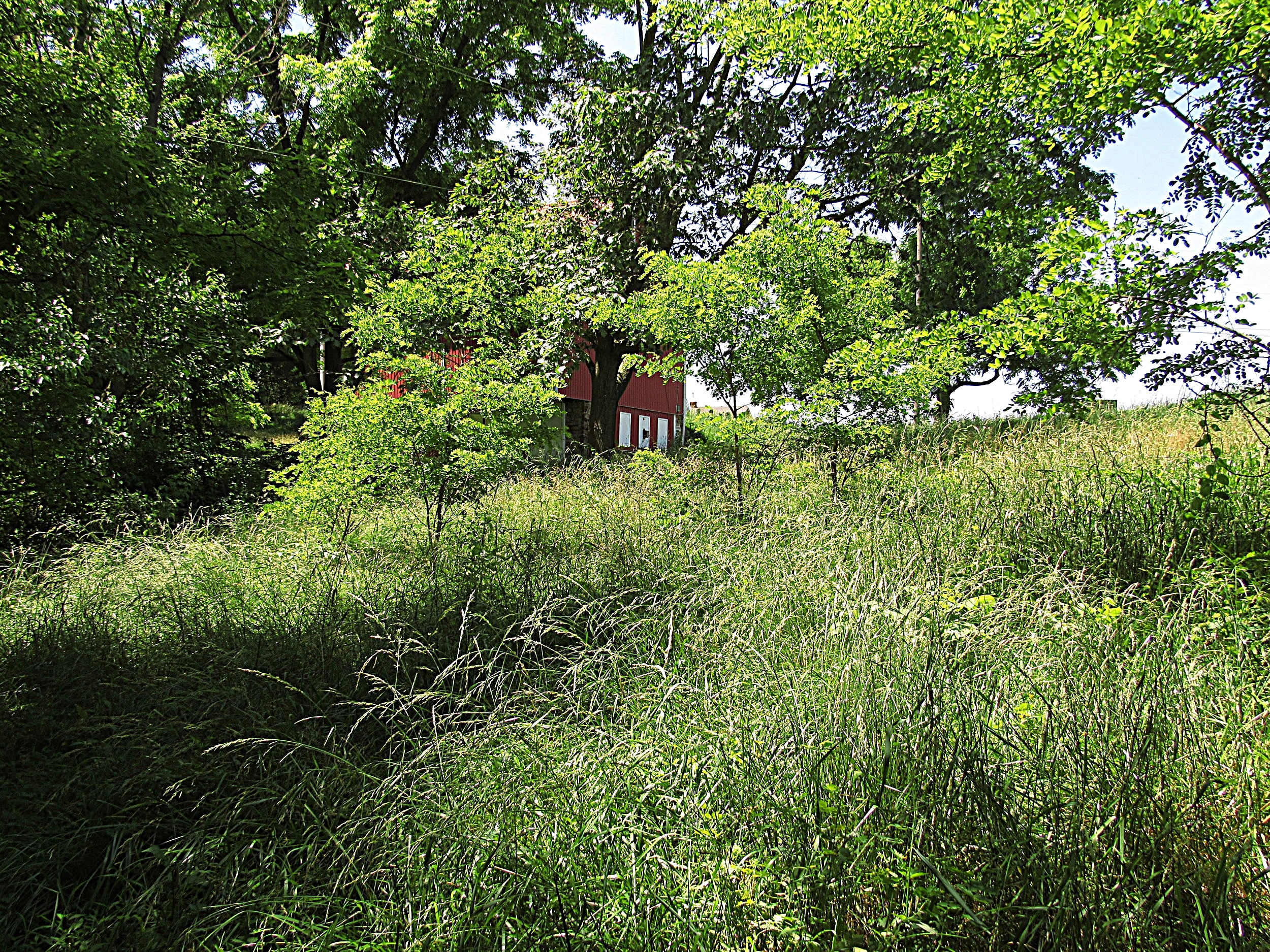My hands are dyed vibrant shades of magenta from picking mulberries for the past two hours. In another hour or two, I’m going to have a megadose of antioxidants, vitamins, minerals, and phytochemicals. Or so I assume. In all honesty, I don’t know anything about the nutritional value of mulberries. I’ll research that later. I just know it feels f***ing incredible to walk into the woods with an empty basket and come back dirty, ecstatic, a little tired, clear-headed, sweaty, bug-bitten, utterly at peace, with a basket full of food in my hand. Real food. Not something that came wrapped in plastic at the store, or was served to me like a fragile prince at a restaurant. Something I stalked and spotted and pulled out of the fragrant earth or popped from a high branch or sliced off the side of a rotten log. Food the way my brain has evolved, for hundreds of millions of years, to understand it and to crave it.
What is it that sets off in our brains when we step into the woods, not just to hike on a trail or watch the birds, but to harvest food?
Maybe you’ve never done it. In that case, this isn’t going to make sense to you. But every person I’ve ever taken foraging has been skeptical of the whole ordeal, right up until the moment we begin the search. Then they understand. But “understand” is probably the wrong word. I’ll put it this way: when we step into the woods and start looking, something in the deepest parts of their humanity kicks into gear. Suddenly, they’re engaged — following in the footsteps and instincts of the earliest Homo sapiens. My fiancee used to think hunting mushrooms was weird. Now we pull the car over when she spots a good patch.
People talk a lot about “flow state.” It’s that thing that happens when you are totally absorbed in what you’re doing, so much so that the outside world fades into a blur and time seems distorted. You think it’s been 20 minutes, but it’s been an hour. It’s a sign that you’re doing something right.
There are three activities that, time after time, put me into flow state: reading, writing, and foraging. I never feel happier or more at peace than when I lose myself in these pursuits.
When I find a grove of ripe paw-paws and breath in the tropical fragrance, filling my basket full and savoring bite after bite of creamy pulp, here only for a week: that’s flow state.
Or when fat yellow chanterelles are thrusting up through the leaf litter, and I’m walking, scanning, sniffing — I swear you can smell them before you see them sometimes — and I spot a cluster! I drop to my knees and slice each stalk carefully, admiring the weird beauty and the alien coloration and inhaling the incense of mother earth, and wondering at the complexity of mycorrhizal relationships: flow state.
One more. In July, when the wineberries and blackberries and raspberries are weighing down their prickly canes, and I step carefully and reach cautiously into the thorny bramble, filling a five-gallon bucket with ripe fruit as thorns press into my thighs, eating almost as many as I drop in the bucket, listening with happiness as the sound of the dropped fruit changes from a little bouncy bongo beat when they tap the bucket’s bottom to the softest mumble as they pile onto a plump bed of their brothers and sisters: flow state.
How do you end a rambling, aimless bit of writing like this? With a personal theory that’s as doubtful as it is vague. It starts in the Garden of Eden.
What is it in this myth that spoke to Semitic agriculturalists thousands of years ago and still speaks to us today? I think part of it is the longing we all have, as civilized people, for somewhere quiet and green and cool, somewhere to live simply and in peace.
Adam and Eve were basically foragers. Eden was a garden planted by God, created as the perfect home and refuge for humanity. They didn’t plant, didn’t water, didn’t plow the earth or sweat with labor. They grazed on the abundance around them.
Then the tempting snake comes along. “You will be like gods,” he says, as he offers the knowledge of good and evil. They close their eyes and bite into the only fruit they were never to eat: self-consciousness, let’s call it. In that apocalyptic moment, the sinking of their teeth through the rind and into the unholy flesh, they become fully modern humans. They are cast out of the garden and into society to work and suffer until they die.
I’m not saying we should abandon the concepts of good and evil, or shed our clothes, or walk away from civilization. But I think foraging lets us temporarily forget both time and ourselves, becoming a little less like gods and more like humans; it lets us return — in some sense that I can’t quite define — back to what we left behind in Eden.

